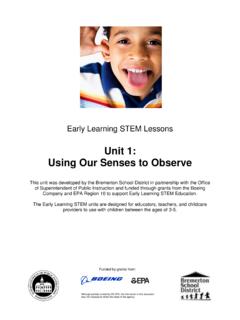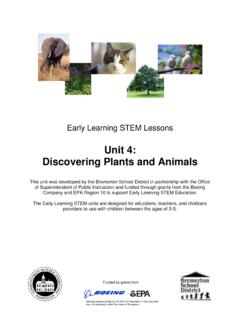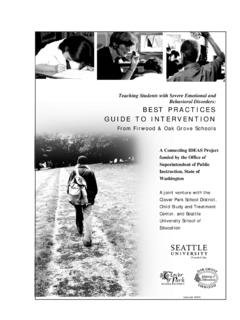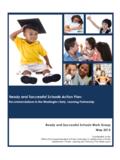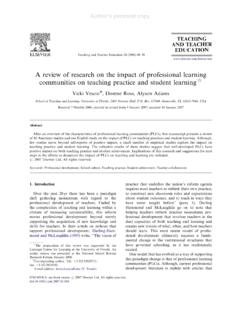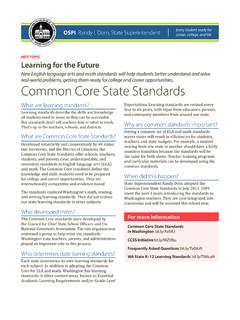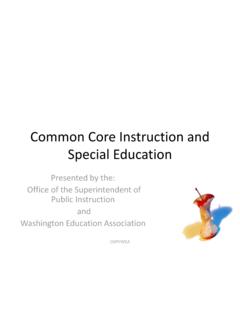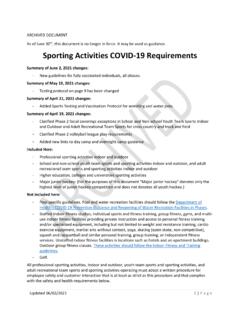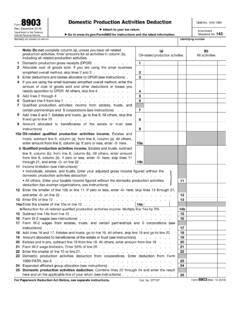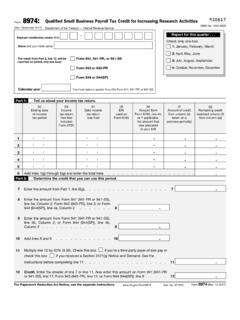Transcription of SOCIAL AND EMOTIONAL LEARNING ACTIVITIES FOR …
1 SOCIAL AND EMOTIONAL LEARNING ACTIVITIES FOR FAMILIES AND EDUCATORS Resource Description Grade Level Educator Family GoNoodle GoNoodle for Families- is a website that engages kids in movement and mindfulness ACTIVITIES that are designed to promote physical wellness, academic success and SOCIAL - EMOTIONAL health. (K-5) X Understanding Your Feelings ACTIVITIES Understanding Feelings ACTIVITIES - Feelings (emotions) are a part of human nature. They give us information about what we re experiencing and help us know how to re-act. In order to handle difficult or challenging situations, it is important that both chil-dren and adults learn to recognize and understand their emotions and learn to under-stand that all people have emotions. Understanding Feelings lists several ACTIVITIES that will allow practice skills for recognizing and managing emotions.
2 (2-5) X PBS Exploring Feelings A PBS Video that demonstrates how to use journals to explore feelings with children. Talking to your kids about their feelings and teaching them to journal is a great way to connect with your children in a meaningful way. This is a fun and easy idea to help your kids flex their EMOTIONAL Intelligence muscles. (2-6) X Journal Buddies Journal Buddies-Daily writing in a relaxed format provides a non-threatening way to be able to explore different thoughts, ideas, topics and feelings without being concerned about audience presentation. Journal Buddies list ideas for prompts to help your child journal. (K-12) X 34 conversation starters for your family Conversation Starters for Families- Family conversations are a great way to make con-nections and check in with each other.
3 It allows family members to develop perspec-tives, family culture, respect for each other and problem-solving skills. Conversation Starters for Families list questions to help get you and your family started on this activ-ity. (K-12) X SOCIAL AND EMOTIONAL LEARNING ACTIVITIES FOR FAMILIES AND EDUCATORS Resource Description Grade Level Educator Family SEL Games to Play with Your Child This site describes five SOCIAL - EMOTIONAL LEARNING games to play with your children to help them learn to manage their emotions and work on SOCIAL skills. (K-5) X GoNoodle for Educators GoNoodle for Educators -- is a website that engages kids in movement and mindful-ness ACTIVITIES that are designed to promote physical wellness, academic success and SOCIAL - EMOTIONAL health. (K-5) X Dear Abby: SEL Kernels Difficult Situations Prac-tice SEL Kernels offers ACTIVITIES for teachers, but this is family adaptable.
4 Students imagine difficult situations and talk about strategies for making responsible, ethical, and healthy choices. (K-5) X X I Spy: SEL Kernels Brain Practice SEL Kernels offers ACTIVITIES for teachers, but this is family adaptable. I Spy: Students use their Focus Binoculars to guess what the teacher or a fellow stu-dent is looking at. (K-6) X X PBS: Adventures in LEARNING PBS Video- Talking to Kids about charity can be tough, but research shows that talking about charity is more effective than role-modeling. In this episode of Adventures in LEARNING , we talk about charity and offer a fun idea for making giving a family affair. (K-6) X PBS: Pen Pals PBS Video - Having a pen pal, either in a different country or just a town away helps kids practice skills in literacy, writing and geography.
5 But there's an even more im-portant skill kids learn, patience. (2-6) X SOCIAL AND EMOTIONAL LEARNING ACTIVITIES FOR FAMILIES AND EDUCATORS Resource Description Grade Level Educator Family Second Step: Covid-19 sup-port On Demand Second Step Lessons- Here, we ve compiled a list of resources you can use to help young people learn the SOCIAL - EMOTIONAL skills they need to get through these challenging events (K-5) X X A Moment for Me: A Self-Com-passion Break for Teens A quick self-compassion practice that can be applied throughout the day whenever difficult emotions arise. Family Adaptable (6-12) X X Loving-Kindness for Someone You Care About Practice acknowledging commonalities with another person and send positive wishes to that person. Family Adaptable (5-12) X X SMART Goal Challenge Self-motivation is an essential component to SOCIAL - EMOTIONAL LEARNING .
6 If you re not sure how to self-motivate your children/students, try challenging your children to reach their potential by setting SMART goals. Work with your children to set a SMART goal. SMART goals must be Specific, Measur-able, Agreed-Upon, Relevant, and Time-Bound. Check in with your children several times throughout the month to measure their progress and support them if any chal-lenges arise. If your children meet their goal by the agreed-upon end date, acknowledge and praise the success. If you wish, give a piece of candy or another reward. (5-12) X X SOCIAL AND EMOTIONAL LEARNING ACTIVITIES FOR FAMILIES AND EDUCATORS Resource Description Grade Level Educator Family If they don t reach the goal, offer encouragement and work with them to accomplish the goal. Have the children problem-solve what could have helped them meet the goal or how it can still be achieved.
7 Write Down, Rip Up and Throw Away Your Stress Have your children write down their expectations and insecurities, rip them up, and throw them away. This EMOTIONAL check-in takes about three minutes. By acknowledg-ing how your children/students are feeling you ll acknowledge their barriers to LEARNING and create a safe space for your children to overcome them. (5-12) X X Competitive Reading Ask students to read a text slowly and then carefully reflect on it. This activity will help cultivate deeper awareness and understanding. Family adaptable- Student reads text aloud instead of to other students. (6-12) X X Competitive Writing This variation on freewriting is a method of inner inquiry, helping students to explore their thoughts, emotions, or ideas on a topic of their choice, an academic-related question, or an ethical dilemma.
8 Family adaptable (5-12) X X A Letter to Yourself-In this activity each student will write a letter to his or her future self, detailing whatever they wish. This can be details of their life now, a poem, or their future goals, etc. When the students receive the letter back again, they will be able to compare and re-flect on the differences within themselves after a year s worth of change. (5-12) X X SOCIAL AND EMOTIONAL LEARNING ACTIVITIES FOR FAMILIES AND EDUCATORS Resource Description Grade Level Educator Family allows users to delay the electronic letter for one, three, or five years, or to choose a specific date of delivery. Dealing with Digital Drama Write down three posts that you have made on SOCIAL media that may have created digital drama. Re-write those three posts in a way that shows good digital citizenship.
9 (6-8) X X Simple Guide to Active Listening for Par-ents/Guardians Listening is an important life skill for parents. When your children feel listened to, they will feel like you understand them. Here are the steps to actively listen to your children. You can also share the steps with your children and guide them through the active lis-tening process. (K-12) X Quote of the day Introduce a quote that you feel is relevant to what your children may be LEARNING or a shared experience for example, how the district is handling school closure. You can facilitate a discussion, or have your children share a one-word response to the quote. This gives your children the space to reflect on their beliefs and experiences and to ex-press whether they agree or disagree with the quote.
10 This would also be a time for you to share your opinion on the quote, which will allow your children to have insight into another person's perspective and feelings. (6-12) X X Appreciation, Apology, and Aha Have your family get in a circle and share an appreciation, apology, or realization with other members of the family. For example, (5-12) X X SOCIAL AND EMOTIONAL LEARNING ACTIVITIES FOR FAMILIES AND EDUCATORS Resource Description Grade Level Educator Family I would like to appreciate Mom for helping me with my project as well as cooking dinner 3 times this week. I apologize to everyone for leaving the family room in a mess. In the future, I will make sure that I clean up my mess so that others can enjoy the room too. Mindfulness of Thoughts Being aware of your thoughts helps you to understand them and has shown to help manage them as well.
